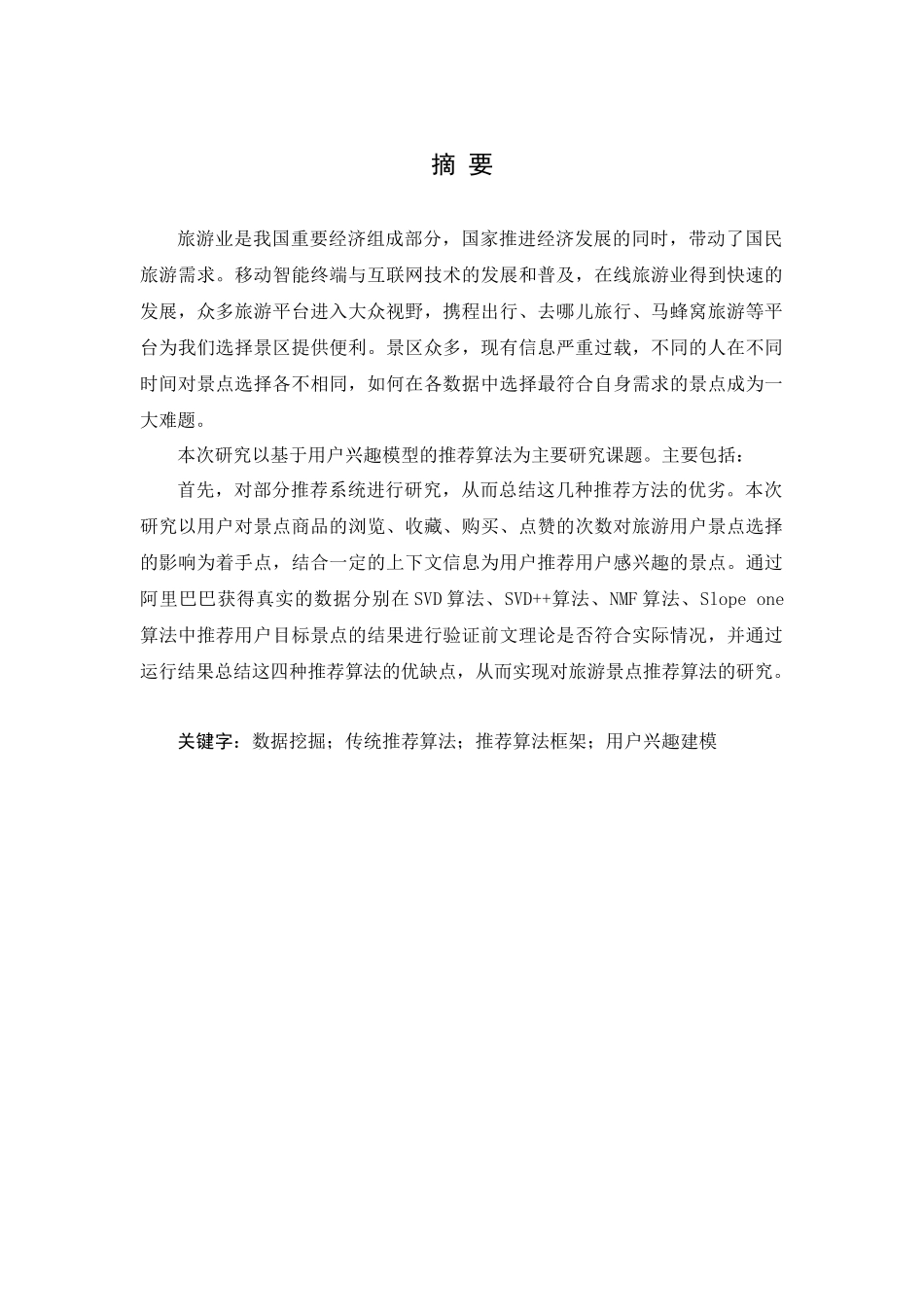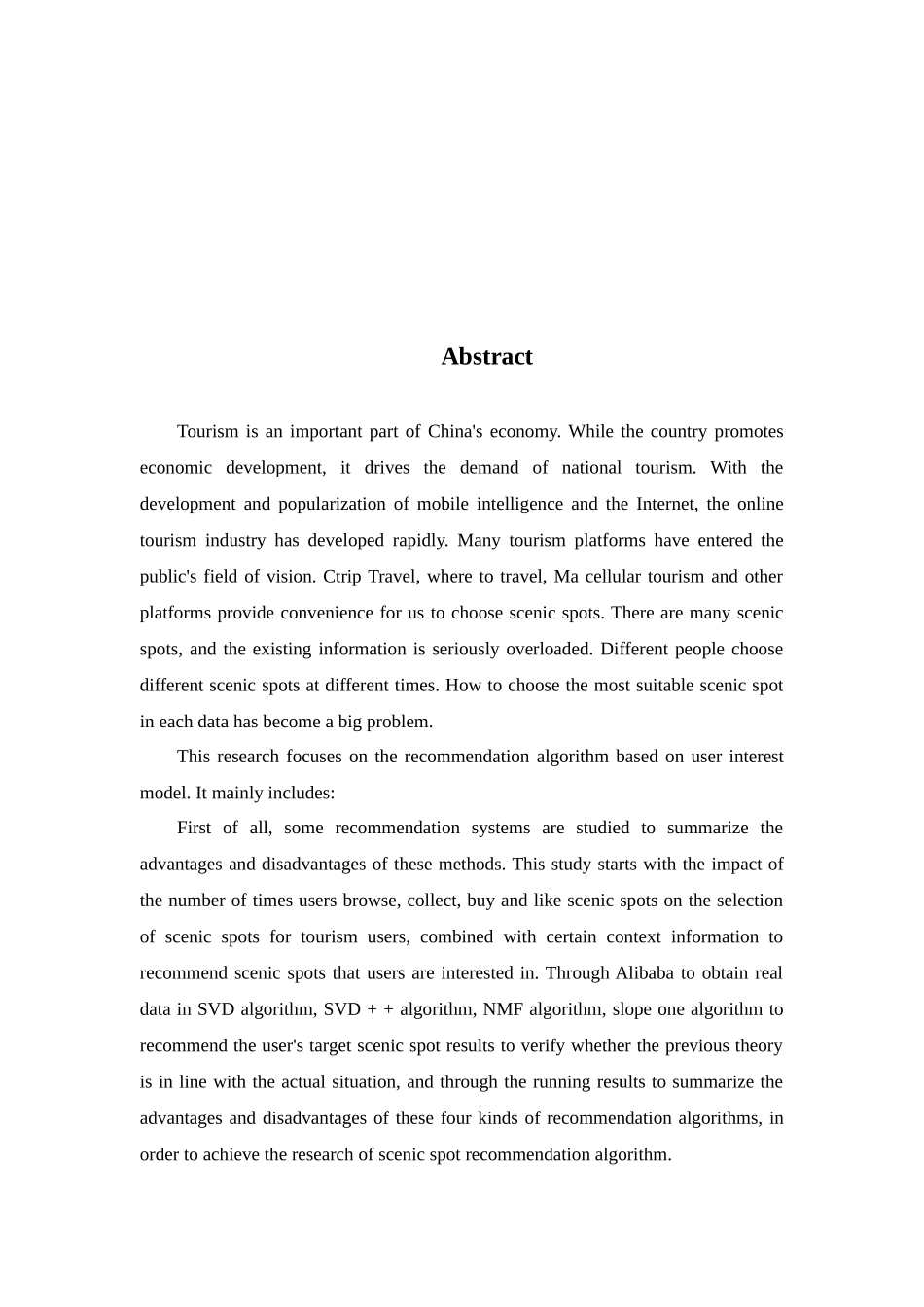摘 要旅游业是我国重要经济组成部分,国家推进经济发展的同时,带动了国民旅游需求。移动智能终端与互联网技术的发展和普及,在线旅游业得到快速的发展,众多旅游平台进入大众视野,携程出行、去哪儿旅行、马蜂窝旅游等平台为我们选择景区提供便利。景区众多,现有信息严重过载,不同的人在不同时间对景点选择各不相同,如何在各数据中选择最符合自身需求的景点成为一大难题。本次研究以基于用户兴趣模型的推荐算法为主要研究课题。主要包括: 首先,对部分推荐系统进行研究,从而总结这几种推荐方法的优劣。本次研究以用户对景点商品的浏览、收藏、购买、点赞的次数对旅游用户景点选择的影响为着手点,结合一定的上下文信息为用户推荐用户感兴趣的景点。通过阿里巴巴获得真实的数据分别在 SVD 算法、SVD++算法、NMF 算法、Slope one算法中推荐用户目标景点的结果进行验证前文理论是否符合实际情况,并通过运行结果总结这四种推荐算法的优缺点,从而实现对旅游景点推荐算法的研究。关键字:数据挖掘;传统推荐算法;推荐算法框架;用户兴趣建模AbstractTourism is an important part of China's economy. While the country promotes economic development, it drives the demand of national tourism. With the development and popularization of mobile intelligence and the Internet, the online tourism industry has developed rapidly. Many tourism platforms have entered the public's field of vision. Ctrip Travel, where to travel, Ma cellular tourism and other platforms provide convenience for us to choose scenic spots. There are many scenic spots, and the existing information is seriously overloaded. Different people choose different scenic spots at different times. How to choose the most suitable scenic spot in each data has become a big problem.This research focuses on the recommendation algorithm based on user interest model. It mainly includes:First of all, some recommendation systems are studied to summarize the advantages and disadvantages of these methods. This study starts with the impact of the number o...


